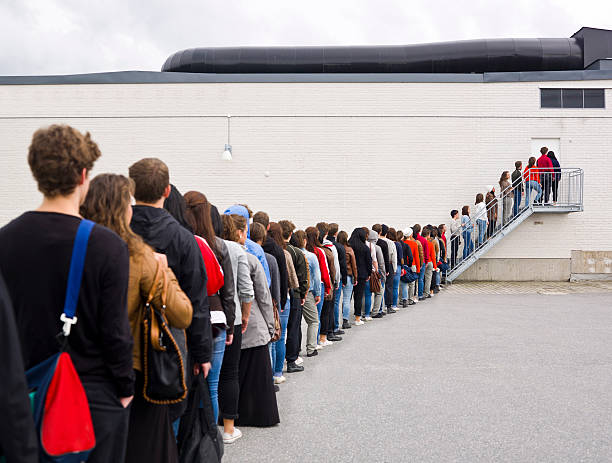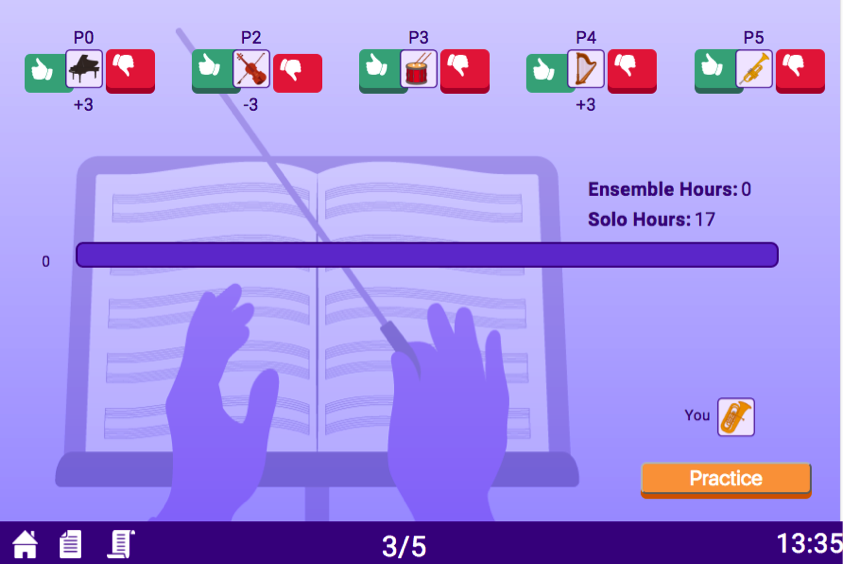Norms or informal rules and expectations are all around us. Most of the time we don’t notice them until someone has violated them. For example, we all have at some point in our life stood in a line to get into some place, to buy our groceries, board a plane, etc. There is no law that dictates that you have to in fact go to the end of the line and it isn't something that the venue, grocery store or airline insists on. It is something though that we all do to respect a social norm of decency and the right of the person who is first at a place to receive the service first. You will realize that this is a norm because of the angry comments and even physical resistance someone experiences who violates this norm. It's not illegal - you can not call the police on them - but we as a community excercise a kind of punishment at a person violating our implicit social rules. 
Compare that to the norm of dish washing. A couple weeks ago I wrote a piece on the Commons Fishery game and Elinor Ostrom’s finding that communities were about to govern the commons by creating agreements and then punishing violators of those agreements. These ideas became less abstract to me as an undergraduate. While living in a home with several others I became so immersed in my work that I neglected dirty dishes (even though we had a house rule). Others would pick up the slack and chide me to “do your dishes.” Then, one day I got home and there were a pile of dirty dishes, pots, and pans on my bed. I was a bit upset. The sheets were smeared with residual marinara. But, then a smile came over my face and I realized (1) I deserved it, and (2) it brought all the lessons from Elinor Ostrom’s commons to life. One way you know it was a greater offense is that someone was willing to incur a cost to punish me. In general, for strong norms or expectations we have for one another, we know they’re strong if we feel the need to let someone else know, “Hey! That’s not ok.” Another example is if you’re a slice hound and grabbing too large a share of the pizza you might get some dirty looks for being too gluttonous. And, there are probably a lot of other examples you can come up with.
MobLab's Implementation of Social Norms and Punishment
How can students experience this social norm and potential punishment without the literal dirty dishes in their beds? MobLab has a game called “Public Goods with Punishments and Rewards.” In that game students are musicians in an orchestra. Students decide how much time to devote to practice that helps the ensemble or practice that helps their own solo efforts. Practice for the ensemble increases your prestige and the prestige of the rest of your orchestra by 1 point. Practice for your solo increases your own prestige by 3 points but does nothing for the prestige of the other orchestral members. You can see there is a tension brewing between what’s best for the individual and what’s best for the group. How can this tension be solved? In the real world, do you think if someone’s time allocation became too selfish is it likely they would be punished? You bet. But, we are also lauded for our selflessness and receive approbation for being “team players” when we do good things for the group. We like that approbation. As the late Adam Smith once wrote, “Man naturally desires, not only to be loved, but to be lovely …” We want others to like us and we want earn their affection towards us.
For the public goods game discussed herein the instructor can manipulate whether individuals have the ability to incur a cost to punish or reward their fellow group members. In the picture shown above 3 hours of the 20 available have been used to either reward or punish the other players. This can open up all kinds of questions related to norms and our social interactions.
Public Goods in economics is about decision-making strategies, and with MobLab’s Public Goods with Punishments and Rewards, you can give your students this hands-on experience. So will they favor the collective interest to practice together or prioritize solo efforts? Play to find out!
Check out our catalog for additional Public Choice games or contact us for a personalized demo!


